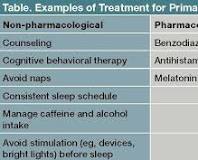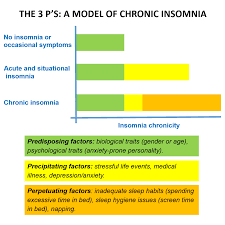Understanding Alcohol Withdrawal Insomnia
Alcohol withdrawal insomnia is a common symptom experienced by individuals who abruptly stop or significantly reduce their alcohol consumption after prolonged use. This type of insomnia can be challenging to manage and can have a significant impact on a person’s overall well-being.
When someone stops drinking alcohol, especially after heavy and prolonged use, their body goes through a period of adjustment as it tries to regain its balance without the presence of alcohol. This adjustment process can lead to various withdrawal symptoms, including insomnia.
Alcohol withdrawal insomnia is characterized by difficulty falling asleep, staying asleep, or experiencing poor-quality sleep. This can result in feelings of fatigue, irritability, difficulty concentrating, and overall decreased quality of life.
It is important for individuals experiencing alcohol withdrawal insomnia to seek support from healthcare professionals who can provide guidance and assistance in managing this symptom. Treatment options may include therapy, medication, and lifestyle changes aimed at improving sleep quality and overall well-being.
In addition to seeking professional help, individuals going through alcohol withdrawal insomnia can also benefit from implementing healthy sleep habits such as establishing a regular sleep schedule, creating a relaxing bedtime routine, avoiding stimulants close to bedtime, and creating a comfortable sleep environment.
By understanding the nature of alcohol withdrawal insomnia and taking proactive steps to address it, individuals can improve their chances of successfully managing this challenging symptom and moving towards a healthier and more balanced life.
5 Positive Aspects of Alcohol Withdrawal Insomnia on the Path to Sobriety
- Alcohol withdrawal insomnia is a sign that the body is adjusting to life without alcohol, indicating progress in sobriety.
- Experiencing alcohol withdrawal insomnia can motivate individuals to seek professional help and support for their recovery journey.
- Managing alcohol withdrawal insomnia can lead to the development of healthier sleep habits and routines.
- Overcoming alcohol withdrawal insomnia can result in improved overall well-being, including better concentration and mood.
- Successfully addressing alcohol withdrawal insomnia can be a significant milestone in achieving long-term sobriety and a healthier lifestyle.
Challenges of Alcohol Withdrawal Insomnia: Fatigue, Cognitive Struggles, and Mental Health Impact
- Alcohol withdrawal insomnia can lead to increased feelings of fatigue and irritability, making it challenging to function effectively during the day.
- Persistent alcohol withdrawal insomnia may contribute to difficulties in concentration and memory recall, impacting cognitive performance.
- The disrupted sleep patterns associated with alcohol withdrawal insomnia can exacerbate existing mental health issues such as anxiety and depression.
Alcohol withdrawal insomnia is a sign that the body is adjusting to life without alcohol, indicating progress in sobriety.
Alcohol withdrawal insomnia serves as a positive indication that the body is in the process of adapting to a life without alcohol, signaling significant progress in one’s journey towards sobriety. This symptom signifies that the body is recalibrating itself and beginning to function without the presence of alcohol, which is a crucial step towards achieving long-term recovery. While alcohol withdrawal insomnia can be challenging to endure, viewing it as a sign of positive change can provide motivation and encouragement for individuals striving to maintain sobriety and improve their overall well-being.
Experiencing alcohol withdrawal insomnia can motivate individuals to seek professional help and support for their recovery journey.
Experiencing alcohol withdrawal insomnia can serve as a powerful motivator for individuals to seek professional help and support in their journey towards recovery. The disruptive nature of insomnia during alcohol withdrawal can highlight the need for comprehensive treatment and guidance from healthcare professionals. By addressing the issue of insomnia, individuals are more likely to engage in a holistic approach to their recovery, which can lead to better outcomes and long-term sobriety. Seeking professional help not only aids in managing insomnia but also provides the necessary tools and resources for individuals to address underlying issues related to their alcohol use and work towards a healthier and more fulfilling life.
Managing alcohol withdrawal insomnia can lead to the development of healthier sleep habits and routines.
Managing alcohol withdrawal insomnia can lead to the development of healthier sleep habits and routines. By addressing this specific challenge, individuals are prompted to prioritize their sleep hygiene and establish consistent bedtime practices. This focus on improving sleep quality can have long-lasting benefits beyond the initial withdrawal period, fostering better overall well-being and contributing to a more balanced and sustainable lifestyle.
Overcoming alcohol withdrawal insomnia can result in improved overall well-being, including better concentration and mood.
Overcoming alcohol withdrawal insomnia can lead to significant improvements in overall well-being. By successfully managing and addressing this challenging symptom, individuals can experience better concentration and mood. Quality sleep plays a crucial role in cognitive function and emotional regulation, so resolving alcohol withdrawal insomnia can have a positive impact on one’s ability to focus, think clearly, and maintain a stable and positive mood throughout the day. Prioritizing sleep health as part of the recovery process from alcohol withdrawal can contribute to a more balanced and fulfilling life.
Successfully addressing alcohol withdrawal insomnia can be a significant milestone in achieving long-term sobriety and a healthier lifestyle.
Successfully addressing alcohol withdrawal insomnia can be a significant milestone in achieving long-term sobriety and a healthier lifestyle. By effectively managing this challenging symptom, individuals not only improve their quality of sleep but also enhance their overall well-being and mental clarity. Better sleep can lead to increased energy levels, improved mood, and a greater ability to cope with stress, all of which are crucial factors in maintaining sobriety and making positive lifestyle changes. Addressing alcohol withdrawal insomnia sets the foundation for a healthier lifestyle by promoting better sleep habits and supporting the body’s natural healing processes during recovery from alcohol dependence.
Alcohol withdrawal insomnia can lead to increased feelings of fatigue and irritability, making it challenging to function effectively during the day.
Alcohol withdrawal insomnia can significantly impact an individual’s daily functioning by exacerbating feelings of fatigue and irritability. The lack of restorative sleep can leave a person feeling drained and mentally foggy, making it difficult to concentrate, make decisions, or engage in tasks effectively throughout the day. The persistent fatigue and irritability resulting from alcohol withdrawal insomnia can further strain relationships, hinder productivity, and diminish overall quality of life. Addressing this con of alcohol withdrawal insomnia is crucial in promoting physical and mental well-being during the recovery process.
Persistent alcohol withdrawal insomnia may contribute to difficulties in concentration and memory recall, impacting cognitive performance.
Persistent alcohol withdrawal insomnia can significantly hinder cognitive function by affecting concentration and memory recall. The ongoing sleep disturbances associated with alcohol withdrawal can lead to difficulties in focusing, processing information, and retaining memories. This can have a profound impact on cognitive performance, making it harder to perform tasks that require mental clarity and sharp memory skills. Addressing alcohol withdrawal insomnia is crucial not only for improving sleep quality but also for maintaining optimal cognitive function and overall well-being.
The disrupted sleep patterns associated with alcohol withdrawal insomnia can exacerbate existing mental health issues such as anxiety and depression.
The disrupted sleep patterns linked to alcohol withdrawal insomnia can worsen pre-existing mental health conditions like anxiety and depression. Lack of quality sleep can intensify feelings of unease, restlessness, and sadness, making it challenging for individuals to cope with their emotions and daily stressors. Addressing alcohol withdrawal insomnia is crucial not only for improving sleep quality but also for supporting overall mental well-being and managing underlying mental health issues effectively.



